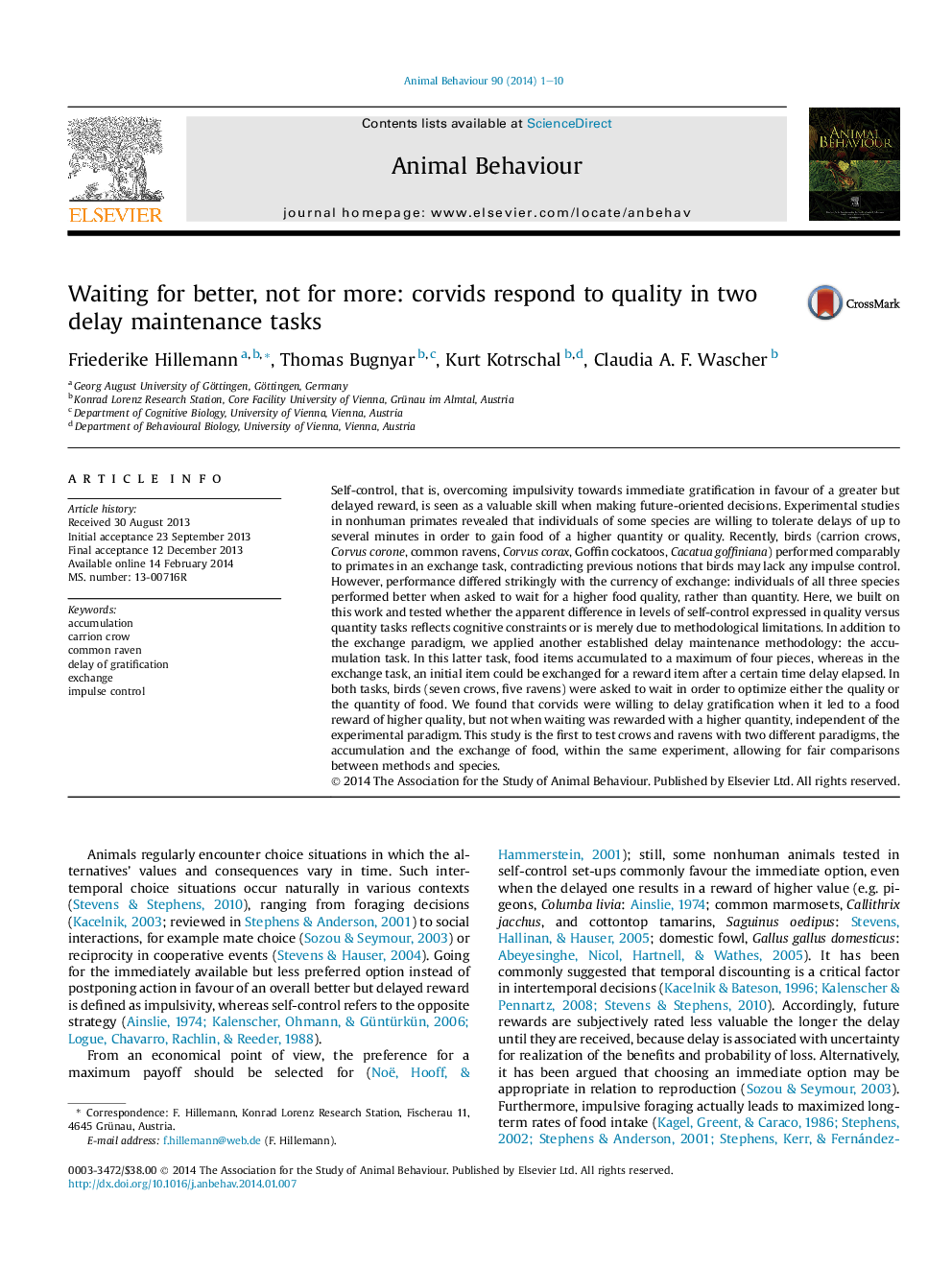| کد مقاله | کد نشریه | سال انتشار | مقاله انگلیسی | نسخه تمام متن |
|---|---|---|---|---|
| 2416371 | 1552238 | 2014 | 10 صفحه PDF | دانلود رایگان |

• We investigated the ability to cope with delayed gratification in crows and ravens.
• We applied two delay maintenance tasks (accumulation and exchange paradigm).
• Corvids were asked to optimize either the quality or the quantity of a food reward.
• Corvids were willing to wait for a higher quality, but not for a higher quantity.
• A few subjects were able to control impulses for prolonged time (up to 10 min).
Self-control, that is, overcoming impulsivity towards immediate gratification in favour of a greater but delayed reward, is seen as a valuable skill when making future-oriented decisions. Experimental studies in nonhuman primates revealed that individuals of some species are willing to tolerate delays of up to several minutes in order to gain food of a higher quantity or quality. Recently, birds (carrion crows, Corvus corone, common ravens, Corvus corax, Goffin cockatoos, Cacatua goffiniana) performed comparably to primates in an exchange task, contradicting previous notions that birds may lack any impulse control. However, performance differed strikingly with the currency of exchange: individuals of all three species performed better when asked to wait for a higher food quality, rather than quantity. Here, we built on this work and tested whether the apparent difference in levels of self-control expressed in quality versus quantity tasks reflects cognitive constraints or is merely due to methodological limitations. In addition to the exchange paradigm, we applied another established delay maintenance methodology: the accumulation task. In this latter task, food items accumulated to a maximum of four pieces, whereas in the exchange task, an initial item could be exchanged for a reward item after a certain time delay elapsed. In both tasks, birds (seven crows, five ravens) were asked to wait in order to optimize either the quality or the quantity of food. We found that corvids were willing to delay gratification when it led to a food reward of higher quality, but not when waiting was rewarded with a higher quantity, independent of the experimental paradigm. This study is the first to test crows and ravens with two different paradigms, the accumulation and the exchange of food, within the same experiment, allowing for fair comparisons between methods and species.
Journal: Animal Behaviour - Volume 90, April 2014, Pages 1–10